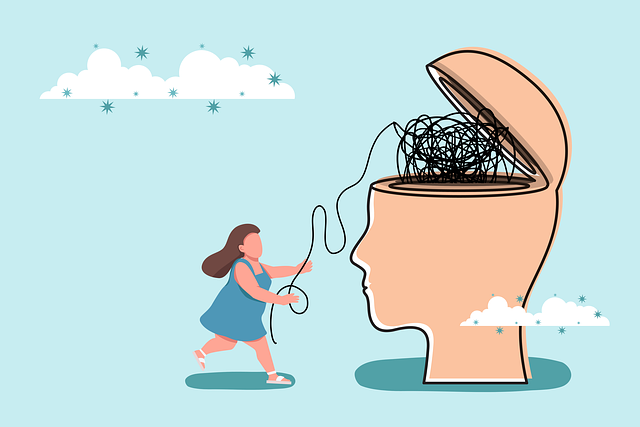The text highlights the urgent need for improved mental health support within the gender-affirming care community, where traditional assessments often miss critical aspects of gender dysphoria and transition stress. It calls for culturally sensitive self-assessment tools developed through collaboration between experts to enhance care quality. Integrating evidence-based therapy into self-care routines (gender-affirming care) is crucial for trans and non-binary individuals' well-being, empowering them with healthier coping mechanisms and strengthening the provider-patient relationship.
In today’s digital age, accessible mental wellness tools are paramount, especially for marginalized communities. This article explores the development of self-assessment tools tailored for gender-affirming mental health care. We delve into the urgent need for gender-inclusive therapy strategies and their impact on trans and non-binary individuals’ well-being. By examining effective self-assessment practices and integrating therapy within self-care, we aim to enhance support systems, ensuring a more inclusive and comprehensive approach to mental wellness.
- Understanding the Need for Gender-Affirming Mental Health Tools
- Developing Effective Self-Assessment Strategies
- Integrating Therapy into Self-Care Practices for Trans and Non-Binary Individuals
Understanding the Need for Gender-Affirming Mental Health Tools

In recent years, there has been a growing recognition of the unique mental health challenges faced by individuals within the gender-affirming care community. This understanding has prompted a critical need for specialized tools and resources tailored to their specific experiences. Traditional mental wellness assessments often fail to capture the nuances of gender dysphoria and transition-related stress, leaving many seeking therapy for gender-affirming care with limited support. The absence of gender-inclusive practices in mental health policy analysis and advocacy has contributed to a gap in effective crisis intervention guidance, particularly for this vulnerable population.
As a result, there is an urgent need for the development of culturally sensitive self-assessment tools designed to accurately evaluate and address the complex interplay of psychological, social, and medical factors that impact gender-affirming individuals’ mental wellness. These tools must be developed in collaboration with experts in the field, including mental health professionals, activists, and community members, to ensure their effectiveness and accessibility. By creating comprehensive assessments, we can better equip practitioners with the necessary insights to provide tailored interventions and support, ultimately enhancing the quality of care for those navigating their gender identity.
Developing Effective Self-Assessment Strategies

Developing effective self-assessment strategies is a pivotal step in enhancing mental wellness, especially for individuals navigating gender-affirming care. These tools play a crucial role in helping people reflect on their emotional well-being and progress, guiding them towards personalized support. By integrating evidence-based methods, such as social skills training, into self-assessment practices, we can empower individuals to accurately gauge their mental health status and identify areas that require attention.
Community outreach program implementation further enriches this process by offering diverse platforms for self-reflection and feedback. Engaging in open dialogue within supportive communities allows individuals to compare experiences, share insights, and gain new perspectives on their mental wellness journey. This collective approach fosters a sense of belonging and encourages the adoption of healthy coping mechanisms, ultimately contributing to improved overall mental health outcomes, especially when coupled with tailored therapy for gender-affirming care.
Integrating Therapy into Self-Care Practices for Trans and Non-Binary Individuals

Integrating therapy into self-care practices is a vital step in supporting trans and non-binary individuals’ mental wellness. Gender-affirming care, or therapy tailored to an individual’s gender identity, can significantly enhance emotional well-being promotion techniques. This specialized approach addresses the unique challenges faced by these communities, fostering a sense of belonging and validation.
Healthcare providers play a crucial role in burnout prevention strategies for themselves and their patients. By integrating evidence-based therapy into routine self-care practices, providers can facilitate healthier coping mechanisms for trans and non-binary individuals, ensuring long-term mental health benefits. This holistic approach not only empowers individuals to navigate societal challenges but also strengthens the provider-patient relationship, fostering a supportive environment for emotional expression and growth.
The development of gender-affirming mental wellness self-assessment tools is a vital step towards enhancing support for trans and non-binary individuals. By recognizing the unique challenges they face, these tools can facilitate access to tailored therapy for gender-affirming care, ensuring that their specific mental health needs are addressed with sensitivity and effectiveness. Integrating such assessments into routine self-care practices empowers individuals to take charge of their mental wellness journey while fostering a more inclusive and supportive societal landscape.














